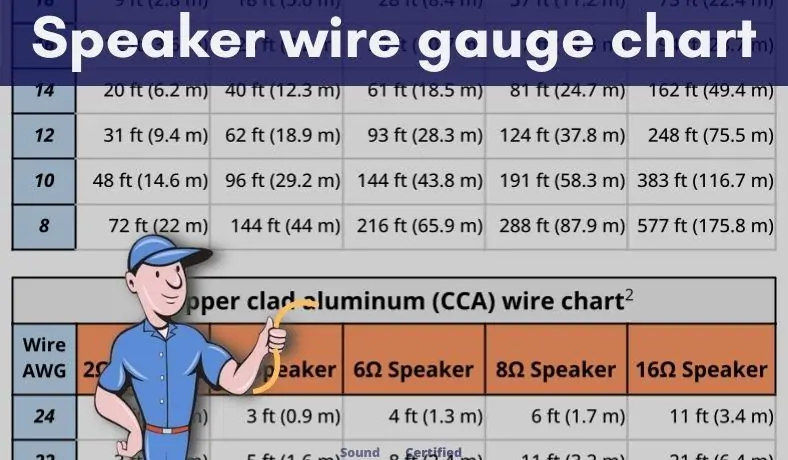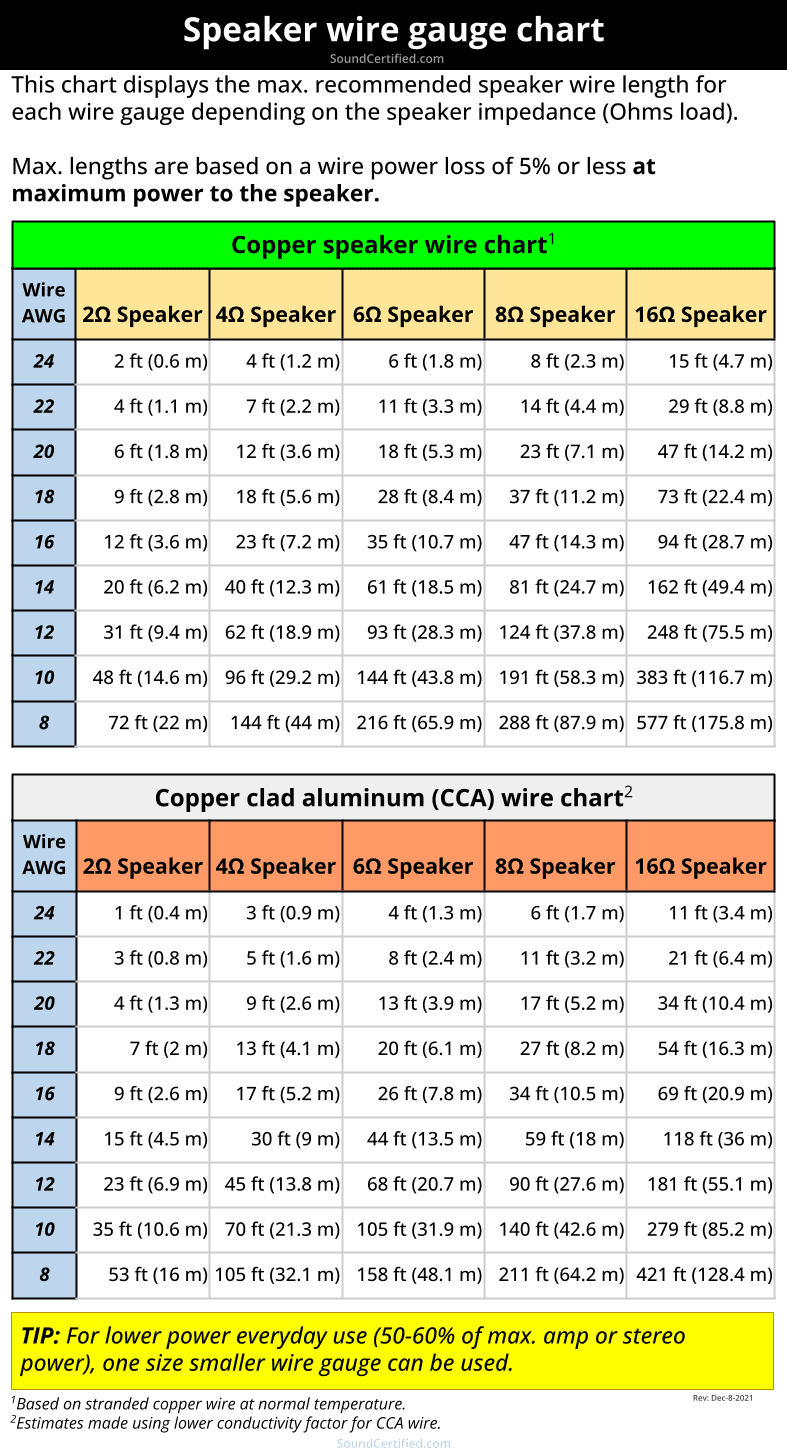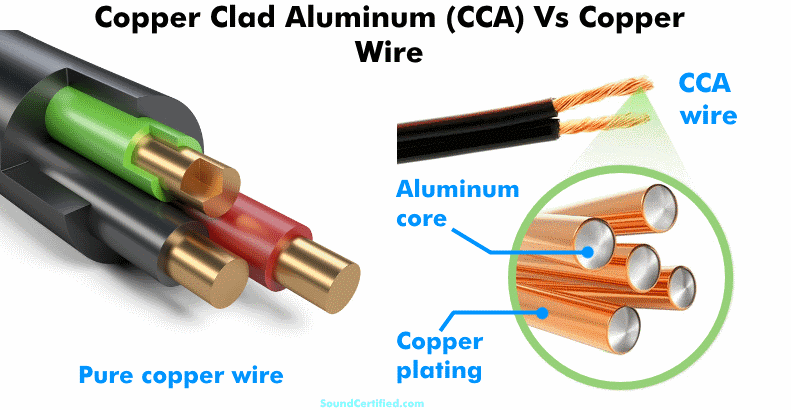Welcome! I’ve put together a helpful speaker wire gauge chart with all the wire size info you need.
You can also download the .PDF version to save for later or print if needed.
Contents
SPEAKER WIRE GAUGE CHART + download
The chart and tables above are simple and especially helpful if you aren’t sure about your amplifier power output, home stereo, or car stereo power rating. With it you’ll have a good estimate of the length of wire that’s ok without losing a lot of power – all you need to know is the speaker Ohms rating.
I’ve included copper wire and copper clad aluminum (CCA) wire charts. That’s because:
- Aluminum has worse conductivity than copper (aluminum has higher resistance per foot), meaning you’ll need a different size CCA wire to perform the same.
- Copper speaker wire is becoming less common as the price of copper metal has increased – a lot of wire sold today is actually CCA wire although they don’t always tell you that!
Speaker wire size for long distance wire runs
What if you need say 50ft or even 100ft of length? In that case, a quick & easy rule of thumb is to double the size by choosing a wire thickness 2 wire gauge sizes up from what you would use for a shorter distance.
Example: 18AWG wire will lose about 4 watts at max. power and 50 feet in length. When moving from a shorter wire length, you’d choose a speaker cable 2 sizes up: 18 AWG -> 16 AWG -> 14 AWG.
Why copper wire and copper clad aluminum (CCA) speaker wire are not the same
Based on personal experience and my installation background, I think it’s important to share copper vs copper-clad aluminum (CCA) wire differences with you. Over time, copper has become more expensive, resulting in electrical and speaker wire being substituted with non-pure copper wire – without the manufacturers telling you honestly!
The issue is that if you’re prepared you could be getting wire that’s not good enough for your audio system or even get ripped off!
Why CCA wire isn’t as good as copper
While copper wire is simply a bunch of fine strands of real copper conductors, copper-clad aluminum wire uses aluminum wire cores surrounded by a very thin copper plating. From the outside, you’ll see the copper finish and it looks the same…but it is NOT the same wire quality!
That’s because aluminum wire has 61% of the conductivity of compared to true copper wire. In other words, it has 39% more resistance to the electrical current that powers your speakers. This means that when comparing two equal size wires made of aluminum and copper, you don’t get the same performance.
That also means you’ll need a larger CCA wire size to get the same power handling, capacity, and resistance as real copper wire.
CCA wire for everyday use and how to get the same performance
For everyday, average listening and low or moderate power levels, it’s not really a problem and you’ll be fine.
However, if you’re going to power speakers with a lot of power or if you have a high-performance home stereo or car audio system, you can’t use a standard wire gauge of CCA speaker wire as you won’t get the same performance. Also, be aware that it’s less flexible than pure copper.
How to get the same performance as copper wire
The good news is that you can use CCA wire and still get the same performance. To do so, move up at least one speaker wire gauge when buying CCA speaker wire.
Example: to replace 18 gauge copper wire, use a 16AWG or 14AWG CCA wire.


